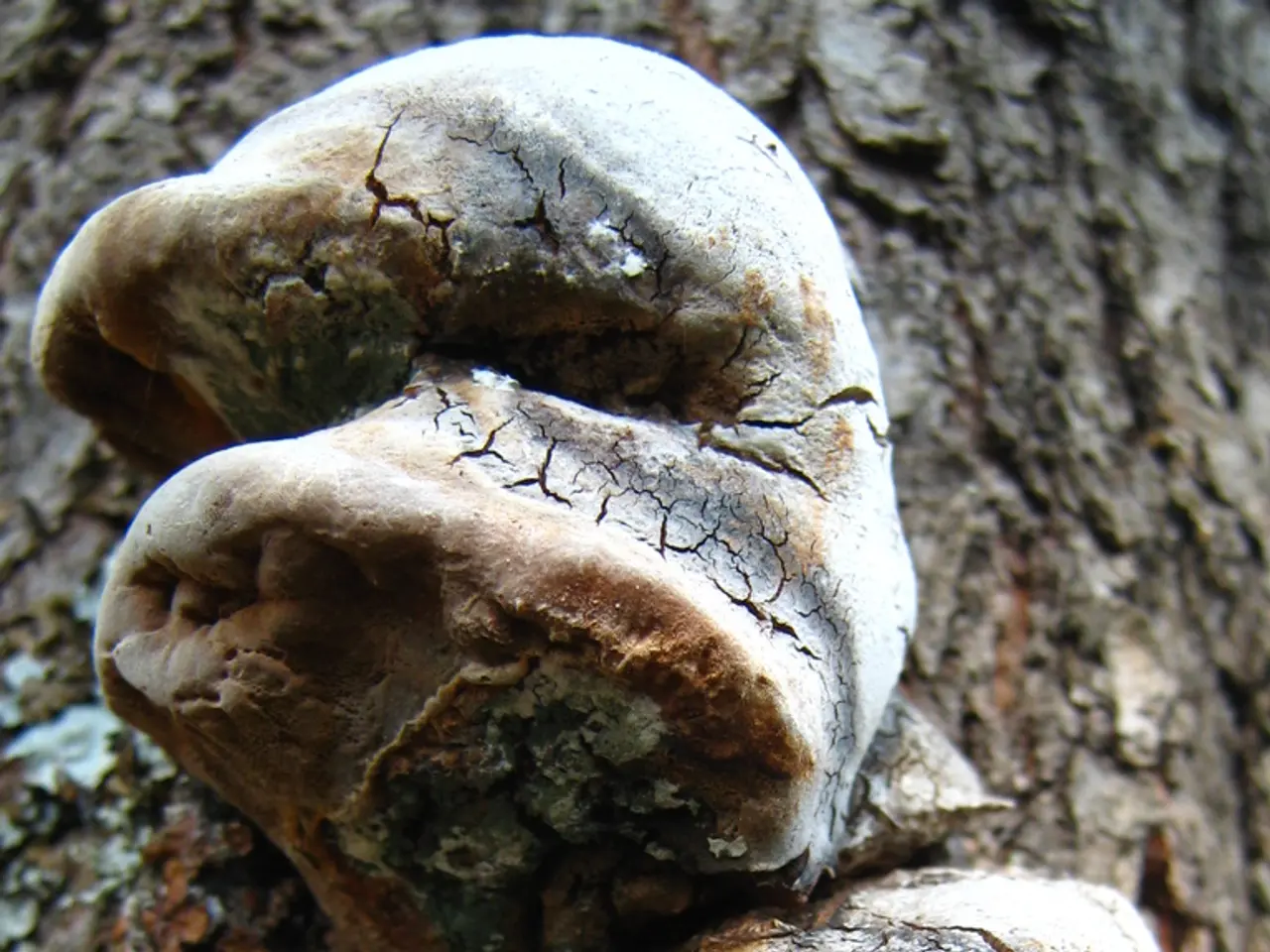Persistent Yeast Infection: Understanding Causes, Symptoms, and Additional Information
Yeast infections, often caused by a fungus called Candida, are a common health issue, especially in warm, moist areas such as the genitals. The primary treatment for a yeast infection is usually an over-the-counter antifungal medication. However, persistent or recurrent infections can be complex and require a comprehensive approach.
One factor contributing to treatment resistance is antifungal resistance. Some Candida species develop resistance to common antifungal medications, particularly azole drugs like fluconazole. This resistance often involves mutations affecting drug target sites or biofilm formation, which protects the fungus from drugs.
Another contributing factor is an imbalance in the vaginal or gut microbiota. Healthy bacteria normally inhibit yeast overgrowth. Antibiotic use, vaginal douching, or gut dysbiosis can disrupt this balance, allowing Candida to proliferate repeatedly.
Lifestyle and environmental factors also play a role. Damp, humid conditions, constant sweating, or wearing non-breathable, damp clothing can promote yeast growth. Poor hygiene or infrequent cleansing may also contribute.
Underlying health conditions, such as diabetes or high blood sugar levels, provide an ideal environment for yeast to grow and impair immune responses. Hormonal changes from pregnancy, birth control, or menopause may also increase vulnerability to yeast infections.
People with weakened immune systems, such as those with multiple sclerosis or on immunosuppressive therapies, may be more prone to chronic or recurrent infections. Infections associated with indwelling catheters or artificial devices can be difficult to eradicate due to biofilm formation by the yeast, which makes them tolerant to antifungals.
If yeast infections recur despite treatment, healthcare providers often recommend testing for antifungal resistance, evaluating underlying conditions, and considering lifestyle interventions combined with alternative antifungal therapies. Probiotics may promote the growth of healthy bacteria and help prevent yeast overgrowth, though research is insufficient to fully support this claim.
It is important to seek medical care if symptoms persist or worsen, as many conditions can mimic the symptoms of a yeast infection. A person with a suspected yeast infection should contact their doctor for an accurate diagnosis and treatment.
For acute yeast infections, over-the-counter antifungal treatments may be recommended, such as fluconazole tablets, topical creams or ointments, or suppositories. It can take at least 7 days for an antifungal medication to eradicate a yeast infection.
For chronic yeast infections, a doctor may recommend a higher dosage of medication or regular repeat doses to prevent reinfection. Good hygiene practices, such as avoiding douching, using perfumed soaps, and deodorants near the vagina, can help prevent yeast infections.
With the right treatment, yeast infections can resolve within 1-2 weeks. For persistent infections or symptoms that resemble a yeast infection but do not respond to treatment, it is important to contact a doctor. Wearing loose, cotton underwear can help reduce the risk of infections by allowing air to circulate around the genitals.
If symptoms do not respond to treatments for a yeast infection, it is best to contact a doctor. Both sexual partners should see a doctor for a diagnosis and treatment if there is a possibility of transmitting a yeast infection.
It is crucial to remember that home remedies for yeast infections are not mentioned in the provided text. If a yeast infection does not respond to home remedies or over-the-counter treatments, it may worsen and require medical attention. Certain conditions, such as AIDS, severe combined immunodeficiency, autoimmune polyendocrinopathy-candidiasis-ectodermal dystrophy (APECED), and autosomal dominant hyper-IgE syndrome (AD-HIES), can weaken the immune system and increase the likelihood of recurrent yeast infections.
Lifestyle remedies, such as not douching, keeping the genitals dry, and taking a probiotic, can help reduce the risk of future infections. Familial candidiasis, an inherited tendency to develop Candida infections, can cause chronic or recurrent yeast infections.
In conclusion, while yeast infections are common, persistent or recurrent infections can be complex and require a comprehensive approach. It is essential to seek medical advice if symptoms persist or worsen, and to maintain good hygiene practices to reduce the risk of future infections.
- Underlying diseases like diabetes or high blood sugar levels contribute to the growth of yeast and impair immune responses.
- Hormonal changes, such as those from pregnancy, birth control, or menopause, can increase vulnerability to yeast infections.
- People with weakened immune systems may be more prone to chronic or recurrent yeast infections.
- Infections associated with indwelling catheters or artificial devices can be challenging to eradicate due to the yeast's biofilm formation.
- If a yeast infection recurs despite treatment, healthcare providers may recommend testing for antifungal resistance.
- Evaluating underlying conditions and considering lifestyle interventions combined with alternative antifungal therapies may be advised for recurrent infections.
- Probiotics may promote the growth of healthy bacteria and help prevent yeast overgrowth, though their effectiveness is not yet fully supported by research.
- A person with a suspected yeast infection should contact their doctor for an accurate diagnosis and treatment.
- For acute yeast infections, over-the-counter antifungal treatments like fluconazole or topical creams may be recommended.
- For chronic yeast infections, a doctor may suggest a higher dosage of medication or regular repeat doses to prevent reinfection.
- Good hygiene practices, such as avoiding douching and using non-perfumed soaps and deodorants near the vagina, can help prevent yeast infections.
- With the right treatment, yeast infections can resolve within 1-2 weeks, but persistent infections or symptoms not responding to treatment necessitate contacting a doctor.
- Conditions like AIDS, severe combined immunodeficiency, autoimmune polyendocrinopathy-candidiasis-ectodermal dystrophy (APECED), and autosomal dominant hyper-IgE syndrome (AD-HIES) can weaken the immune system, leading to an increased likelihood of recurrent yeast infections.




